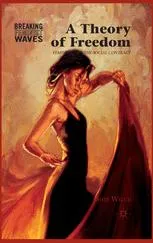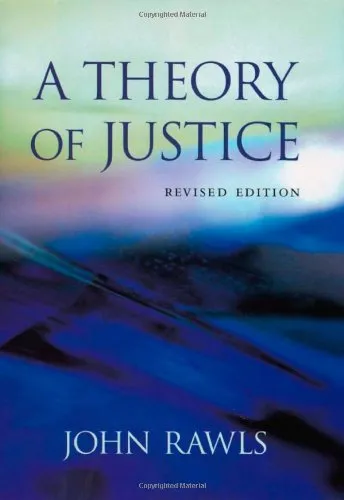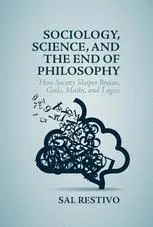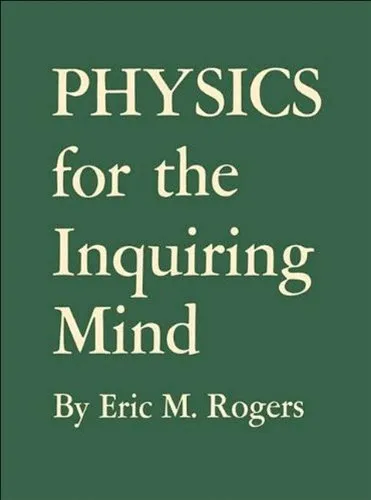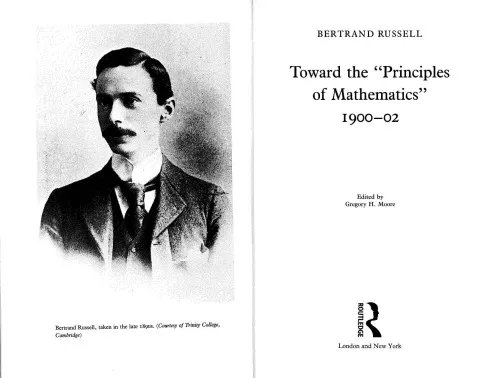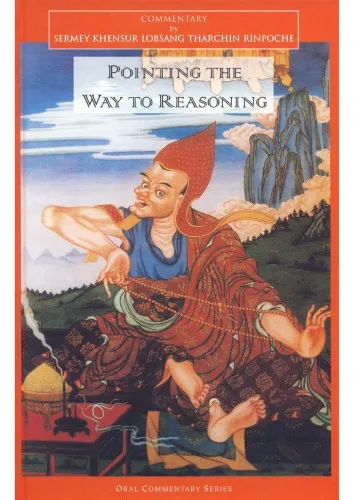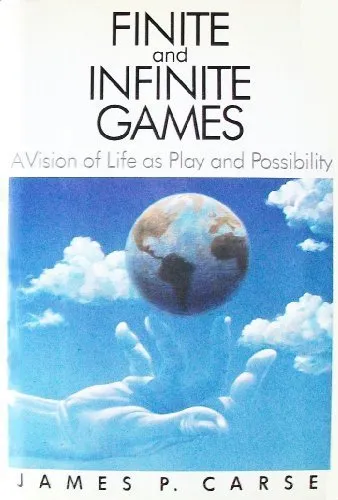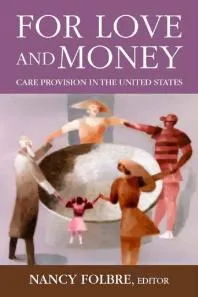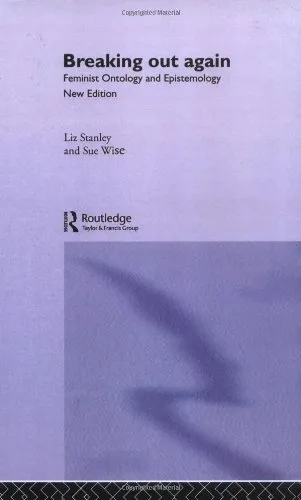A Theory of Freedom: Feminism and the Social Contract
4.5
بر اساس نظر کاربران

شما میتونید سوالاتتون در باره کتاب رو از هوش مصنوعیش بعد از ورود بپرسید
هر دانلود یا پرسش از هوش مصنوعی 2 امتیاز لازم دارد، برای بدست آوردن امتیاز رایگان، به صفحه ی راهنمای امتیازات سر بزنید و یک سری کار ارزشمند انجام بدینکتاب های مرتبط:
معرفی کتاب: A Theory of Freedom: Feminism and the Social Contract
کتاب A Theory of Freedom: Feminism and the Social Contract نوشته شای ولش، یکی از پژوهشهای برجسته و نوآورانه در ادبیات فلسفی فمینیستی است که تلاش میکند تعامل میان مفاهیم آزادی، فمینيسم و نظریه قرارداد اجتماعی را تحلیل کند و از خلال آن چارچوبی جدید برای فهم آزادی ارائه دهد. در این اثر، نویسنده از رویکرد فلسفی و انتقادی برای نقد بنیادین نظریههای سنتی قرارداد اجتماعی استفاده کرده و به بررسی ساختارهای قدرتی میپردازد که در درون مناسبات اجتماعی و جنسیتی درهم تنیدهاند.
خلاصهای از کتاب
این کتاب از چهار بخش اصلی تشکیل شده است که هر یک به صورت گامبهگام خواننده را به سوی فهمی تازه از آزادی و ارتباطات اجتماعی رهنمون میسازد. ولش با نقد چارچوبهای ذهنی و تاریخی قرارداد اجتماعی در مباحث فلسفی غربی، توجه را به نحوه نادیده گرفته شدن صداهای حاشیهای، به ویژه زنان و سایر گروههای به حاشیه رانده شده، جلب میکند. او استدلال میکند که نظریههای کلاسیک قرارداد اجتماعی، همانند نوشتههای آرای ژان-ژاک روسو، توماس هابز و جان لاک، بر مفهومی از خودمختاری و آزادی مبتنیاند که اغلب با حذف یا سرکوب هویتهای دیگر بازتولید میشود.
ولش هدف اصلی کتاب را نقد این دیدگاه سنتی با استفاده از لنز فمینیستی عنوان میکند و اضافه میکند که درک قدرت و آزادی مستلزم شناخت روابط اجتماعی و تفاوتهای بین ساختارهای اجتماعی است. او این دیدگاه را مطرح میکند که آزادی نمیتواند تنها به عنوان خودمختاری فردی در نظر گرفته شود، بلکه باید به عنوان توانایی برای شکل دادن به روابط متقابل اجتماعی و تاثیرگذاری بر آنها بازاندیشی شود. کتاب به تفصیل به شرایطی میپردازد که تحت آنها گروههای زنان و دیگر گروههای حاشیهای میتوانند آزادی را به شکلی معنادار تجربه کنند.
نکات کلیدی
- نقد نظریههای سنتی قرارداد اجتماعی با توجه به دیدگاههای فمینیستی.
- تعریف جدیدی از مفهوم آزادی به عنوان رابطهای مبتنی بر تعاملات اجتماعی.
- تحلیل نقش قدرت در شکلگیری روابط اجتماعی و جنسیتی.
- تاکید بر اهمیت صداهای حاشیهای و تنوع فرهنگی در نظریهپردازی فلسفی.
- ارائه دیدگاهی تازه درباره آزادی که از باورهای اتمیستی فاصله میگیرد.
جملات مشهور از کتاب
“True freedom is not the absence of constraints, but the ability to negotiate and reshape them within the framework of just and equitable relationships.”
“The traditional social contract depends on exclusion; a feminist reimagining of freedom demands inclusion and collaboration.”
چرا این کتاب اهمیت دارد؟
کتاب A Theory of Freedom در زمانی که بحثهای فلسفی و اجتماعی در مورد جنسیت، آزادی و قدرت در مرکز گفتگوها قرار گرفته، نگاهی نوین و ضروری را به این مسائل ارائه میدهد. ولش با استفاده از ابزار فمینیستی، خوانندگان را به چالش میکشد تا بار دیگر به تعاریف پذیرفتهشده از آزادی و عدالت بیاندیشند. اهمیت این کتاب بیشتر در توانایی آن برای ایجاد پیوند میان آکادمی و مسائل روزمره زندگی نهفته است، جایی که نظریههای انتزاعی مستقیماً به مشکلات واقعی اجتماعی مربوط میشوند.
علاوه بر این، کتاب به دلیل رویکرد میانرشتهای خود میان فلسفه، فمینيسم و نظریه اجتماعی قادر است به خوانندگان مختلفی از جمله دانشگاهیان، فعالان اجتماعی و عموم مردم، بستر فکری جدیدی برای بررسی و ارزیابی مفاهیمی همانند آزادی و عدالت ارائه کند.
Introduction to A Theory of Freedom: Feminism and the Social Contract
In A Theory of Freedom: Feminism and the Social Contract, Shay Welch brings an innovative perspective to the intersections of feminist theory, critical philosophy, and political thought. The book reimagines entrenched ideas surrounding freedom, agency, and individualism by placing feminist critiques at the center of social contract theory. With a focus on dismantling patriarchal assumptions embedded in conventional notions of freedom, this work offers a robust framework for understanding liberation in a world shaped by structural inequality. Through a comprehensive analysis, Welch underscores the need to reconceptualize freedom not as a solitary endeavor, but as inherently intertwined with our roles within a collective social context.
This book invites readers to challenge long-standing philosophical traditions, interrogating their complicity in sustaining systemic oppression. By employing feminist perspectives and reworking foundational principles of social contract theory, Welch builds a unique and compelling argument that moves beyond individualist notions of freedom, stressing its relational and intersubjective dimensions.
Detailed Summary of the Book
The book meticulously bridges the gap between contemporary feminist philosophy and social contract theory. Welch begins by identifying limitations within traditional theories of the social contract, especially their reliance on hyper-individualism and exclusionary practices. She argues that conventional frameworks often sideline marginalized voices and perpetuate hegemonic power structures, thereby failing to account for the lived realities of women and other oppressed groups.
In subsequent chapters, Welch constructs an alternative vision of freedom rooted in feminist ideals. She argues that freedom cannot be understood in isolation from others. Instead, freedom must be viewed as a relational construct: something negotiated and expressed through engagement with one another. Inherent in this argument is a rejection of the classical notion of autonomy as entirely self-sufficient; instead, Welch posits that autonomy must be redefined as dependent upon reciprocal recognition and mutual accountability.
By extending feminist critique to the heart of the social contract, the book emphasizes concepts like care, embodiment, cooperation, and deep interdependence as critical to any understanding of freedom. This reconceptualization acknowledges the realities of human vulnerability and the ethical obligations we carry toward one another in shared social spaces. Each chapter builds toward a holistic vision of a social contract that prioritizes inclusivity, equality, and collective liberation over the unchecked pursuit of individual gains.
Key Takeaways
- Traditional social contract theories often exclude marginalized perspectives, perpetuating systems of oppression.
- Freedom cannot exist as a solitary or isolated experience; it must be understood as relational and dependent on the well-being of others.
- Feminist philosophy offers transformative insights into reimagining political theory and dismantling patriarchal ideologies embedded in societal structures.
- Care, empathy, and mutual accountability are essential components of a more just and equitable social contract.
- By embracing interdependence and rejecting hyper-individualism, we can create freer, more inclusive societies.
Famous Quotes from the Book
"Freedom is only meaningful when it is shared—when our liberation becomes inseparable from the liberation of others."
"The social contract, as it has historically been constructed, is not a neutral agreement, but a contract steeped in exclusion, privilege, and systemic inequality."
"To truly understand freedom, we must dismantle the myth of independence and instead embrace the reality of mutual reliance."
Why This Book Matters
A Theory of Freedom: Feminism and the Social Contract is a critical contribution to political philosophy and feminist thought. It challenges entrenched narratives about freedom, autonomy, and self-determination, offering a path toward more inclusive and equitable social structures. This book is especially relevant in contemporary discussions surrounding justice and equality, as it equips readers with the intellectual tools to question systemic oppression and envision pathways toward collective liberation. It speaks to scholars, activists, and anyone invested in the promise of a freer, more just world.
What sets this book apart is its integration of complex philosophical inquiry with the urgency for social change. By reworking foundational theories to include marginalized voices, it exemplifies the transformative power of feminist critique. Whether you're a student of political science, a feminist scholar, or simply someone eager to better understand the mechanisms of freedom and oppression, this book offers invaluable insights into the possibility of a reimagined social contract for the modern world.
دانلود رایگان مستقیم
شما میتونید سوالاتتون در باره کتاب رو از هوش مصنوعیش بعد از ورود بپرسید
دسترسی به کتابها از طریق پلتفرمهای قانونی و کتابخانههای عمومی نه تنها از حقوق نویسندگان و ناشران حمایت میکند، بلکه به پایداری فرهنگ کتابخوانی نیز کمک میرساند. پیش از دانلود، لحظهای به بررسی این گزینهها فکر کنید.
این کتاب رو در پلتفرم های دیگه ببینید
WorldCat به شما کمک میکنه تا کتاب ها رو در کتابخانه های سراسر دنیا پیدا کنید
امتیازها، نظرات تخصصی و صحبت ها درباره کتاب را در Goodreads ببینید
کتابهای کمیاب یا دست دوم را در AbeBooks پیدا کنید و بخرید
1250
بازدید4.5
امتیاز0
نظر98%
رضایتنظرات:
4.5
بر اساس 0 نظر کاربران
Questions & Answers
Ask questions about this book or help others by answering
No questions yet. Be the first to ask!
